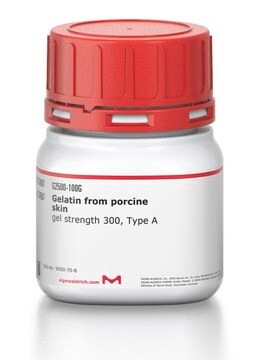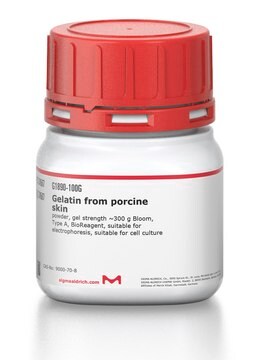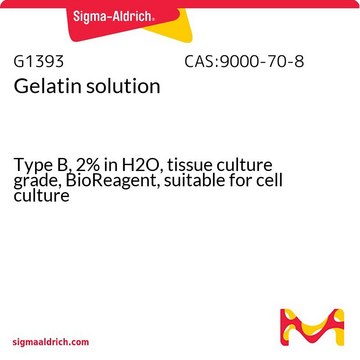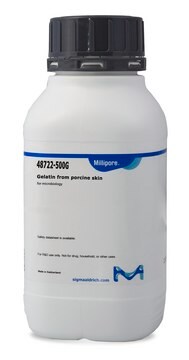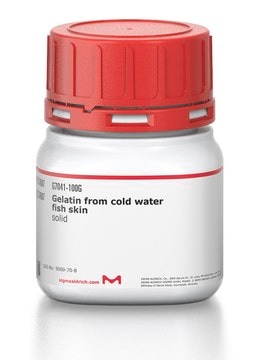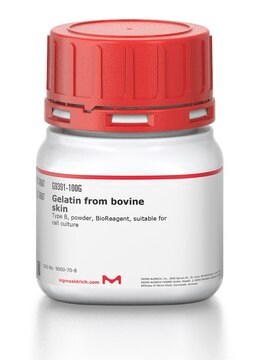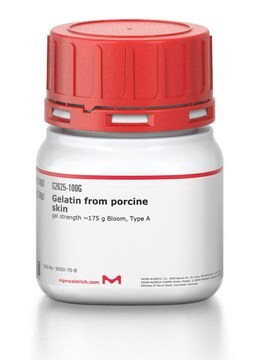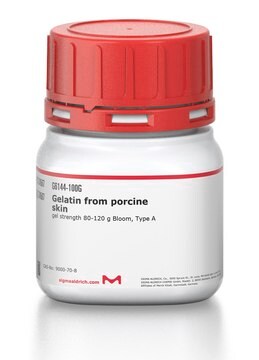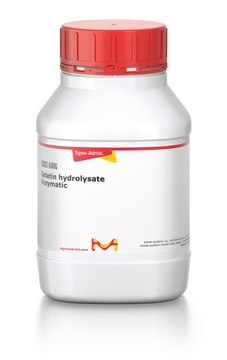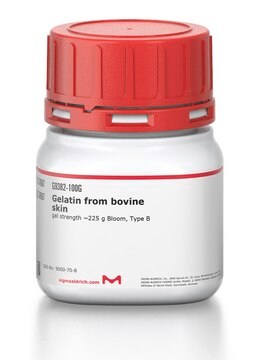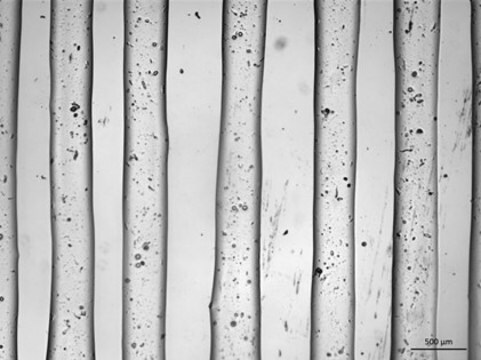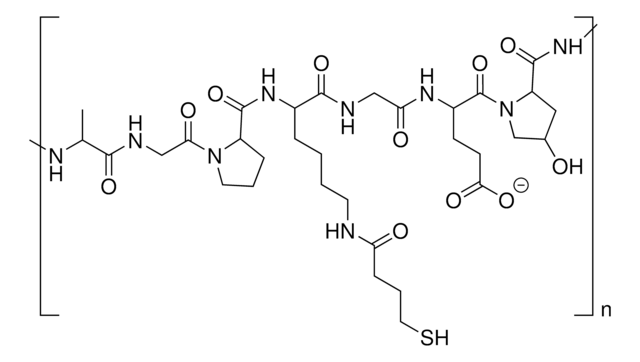V900863
Porcine Gelatin
from porcine skin, Type A, powder, gel strength ~300 g Bloom, Vetec™
Sign Into View Organizational & Contract Pricing
All Photos(2)
About This Item
Recommended Products
Product Name
Gelatin from porcine skin, Vetec™, reagent grade, Type A, powder, gel strength ~300 g Bloom
biological source
Porcine skin
grade
reagent grade
type
Type A
product line
Vetec™
form
powder
packaging
poly bottle of 100 g
poly bottle of 500 g
solubility
H2O: soluble 50 mg/mL, clear to hazy, faintly yellow to yellow
Looking for similar products? Visit Product Comparison Guide
General description
Gelatin acts as a key element in a variety of foodstuffs and pharmaceutical products, including jellies, aspics, desserts, capsule, tablets and blood substitutes. Usually, most gelatin products have been manufactured from porcine skin.
Components
Gelatin is a heterogeneous mixture of water-soluble proteins of high average molecular masses, present in collagen. Proteins are extracted by boiling the relevant skin, tendons, ligaments, bones, etc. in water. Type A gelatin is derived from acid-cured tissue. Type B is derived from lime-cured tissue.
Legal Information
Vetec is a trademark of Merck KGaA, Darmstadt, Germany
Storage Class Code
11 - Combustible Solids
WGK
nwg
Flash Point(F)
Not applicable
Flash Point(C)
Not applicable
Choose from one of the most recent versions:
Already Own This Product?
Find documentation for the products that you have recently purchased in the Document Library.
Customers Also Viewed
Haijiang Dong et al.
Bioactive materials, 18, 164-177 (2022-04-08)
A personalized medication regimen provides precise treatment for an individual and can be guided by pre-clinical drug screening. The economical and high-efficiency simulation of the liver tumor microenvironment (TME) in a drug-screening model has high value yet challenging to accomplish.
Effects of gelatins on calcium phosphate precipitation: a possible application for distinguishing bovine bone gelatin from porcine skin gelatin.
Hidaka S and Liu SY.
J. Food Compos. Anal., 16(4), 477-483 (2003)
Hongqing Chen et al.
Regenerative biomaterials, 8(3), rbab026-rbab026 (2021-07-03)
Both of the long-term fidelity and cell viability of three-dimensional (3D)-bioprinted constructs are essential to precise soft tissue repair. However, the shrinking/swelling behavior of hydrogels brings about inadequate long-term fidelity of constructs, and bioinks containing excessive polymer are detrimental to
Zongxi Wu et al.
Materials science & engineering. C, Materials for biological applications, 109, 110530-110530 (2020-04-02)
Peripheral nerve injuries often cause different degrees of sensory and motor function loss. Currently, the repair effect of the "gold standard", autologous nerve transplantation, is unsatisfactory. Tissue engineering has the potential to tissue manipulation, regeneration, and growth, but achieving personalization
Duo Zhang et al.
Frontiers in cell and developmental biology, 9, 664545-664545 (2021-07-27)
It has been previously demonstrated that uniaxial cyclic stretching (UCS) induces differentiation of mesenchymal stem cells (MSCs) into osteoblasts in vitro. It is also known that interactions between cells and external forces occur at various aspects including cell-matrix, cytoskeleton, nucleus
Our team of scientists has experience in all areas of research including Life Science, Material Science, Chemical Synthesis, Chromatography, Analytical and many others.
Contact Technical Service